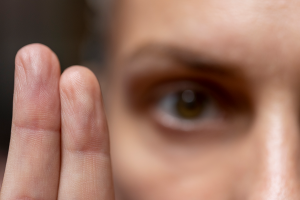Getting through your teen years can be tough. Between school stress, social pressures, and the many emotions that come with growing up, it’s no wonder many teens experience depression. Does counseling help teen depression? Absolutely!
Teen depression isn’t just a phase, typical teenage moodiness, or adolescent angst. It’s a serious mental health condition that affects how a teenager thinks, feels, and behaves.
Symptoms of Depression in Teens
- Persistent sadness or hopelessness
- Irritability or anger
- Withdrawal from friends and activities
- Changes in appetite or sleep patterns
- Lack of energy or motivation
- Difficulty concentrating
- Thoughts of self-harm or suicide
If you notice these signs in a teen, it’s crucial to seek help.
How Does Counseling Help Teen Depression?
Counseling for teens provides a safe space to explore their feelings, thoughts, and behaviors with the guidance of a trained professional. A counselor can offer a non-judgmental environment where teens can openly express their emotions. This validation alone can be incredibly healing.
Counselors teach practical skills to manage stress, anxiety, and depressive symptoms. These strategies can include relaxation techniques, positive self-talk, and problem-solving skills. Counselors work with teens to identify negative thought patterns and behaviors, replacing them with healthier alternatives. Over time, counseling helps teens build emotional resilience, equipping them with the tools to handle future challenges more effectively. Therapy also helps teens and their families understand the underlying issues contributing to depression, whether they’re related to family dynamics, trauma, or other factors.
Best Counseling Approaches for Teens with Depression
Not all counseling approaches are the same, and what works best can vary from one teen to another. Here are some commonly used counseling approaches for teens with depression that are considered by many counselors and therapists to be effective:
Cognitive Behavioral Therapy (CBT)
CBT is one of the most widely used therapies for depression. It focuses on identifying and changing negative thought patterns and behaviors. Teens learn to challenge their negative thoughts and develop healthier ways of thinking and reacting to situations. CBT is structured and goal-oriented, making it particularly effective for teens.
Interpersonal Therapy (IPT)
IPT centers on improving interpersonal relationships and communication skills. It helps teens understand how their interactions with others affect their mood and vice versa. By addressing issues like conflict with family or friends, IPT can reduce depressive symptoms.
Dialectical Behavior Therapy (DBT)
Originally developed for borderline personality disorder, but don’t let that scare you. DBT has since been adapted to help teens with depression by combining CBT techniques with mindfulness practices. DBT focuses on teaching teens how to regulate their emotions, tolerate distress, and improve relationships through effective communication.
Family Therapy
Since family dynamics can significantly impact a teen’s mental health, family therapy can be highly beneficial. This approach involves working with the whole family to improve communication, resolve conflicts, and create a supportive home environment.
Play Therapy and Expressive Arts Therapy
For younger teens (and even some older teens) or those who struggle to express themselves, play therapy and expressive arts therapy can be incredibly effective. These therapies use creative activities like drawing, painting, and storytelling to help teens explore their emotions and experiences in a non-threatening way.
Finding the Right Counselor for Teens
It’s important to find a counselor who specializes in working with teens and understands the unique challenges they face. Look for licensed mental health professionals with experience in adolescent psychology and depression. Don’t be afraid to ask potential counselors about their approaches and experience to ensure a good fit. BATT has several counselors who specialize in the treatment of adolescents, including Licensed Professional Counselors, Licensed Clinical Social Workers, and Licensed Marriage and Family Therapists.
With the right support and counseling approach, teens can learn to manage their symptoms, build resilience, and find hope for the future. If you know a teen struggling with depression, encourage them to seek help and explore the benefits of teen depression counseling. It could be the first step toward a brighter, healthier future. Contact us to learn more or book an appointment.







